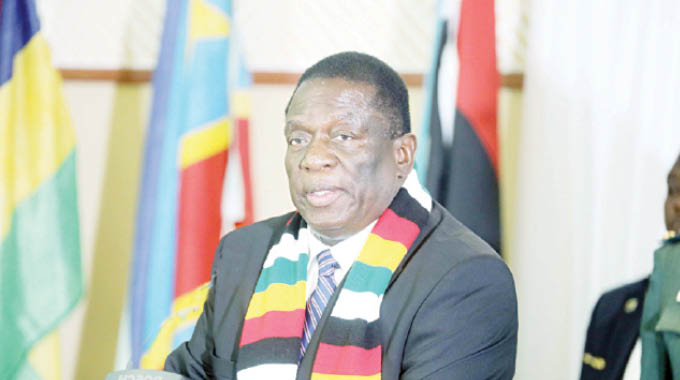‘Diversify export market’ . . . Relying on SA not good, firms told

Leonard Ncube, Victoria Falls Reporter
ZIMBABWE’s dependency on South Africa for exports is not good for the economy and local producers must diversify their market to widen opportunities of earning more foreign currency for the country.
This emerged during an export awareness seminar organised by ZimTrade for manufacturers of goods and service providers as well as Small and Medium Enterprises (SMEs) in Victoria Falls.
The seminar sought to engage manufacturers of goods and service providers in order to encourage them to diversify into the regional market.
ZimTrade Matabeleland regional manager, Mr Similo Nkala, said South Africa commands 50 percent of Zimbabwe’s market share, which is not good for the economy.
He said the national trade promotion organisation had conducted a market research and identified opportunities for local exporters.
“We have to diversify and not concentrate on specific products and country. As ZimTrade we are your partner and we have been conducting market research in the DRC, Germany, Malawi, Namibia, Angola, Botswana and Zambia so that we can really try and assist our companies. We found that there are opportunities out there,” he said.
Mr Nkala said capturing the foreign market was the only way to earn foreign currency for the country.
“Yes, things are tough but find your niche and the question now is do you have the means and are you able to supply? The issue of us growing our exports is critical to economic revival and for us export is the only way to revive the economy,” he said.
“We rely on South Africa, which accounts for 50 percent of market share and the United Arab Emirates with 20 percent share meaning that when South Africa catches a cold, we all sneeze. We need to go back to 1992 where we used to market in Italy, France, Germany, South Africa and many more so in times of trouble we would rely on others.”
Mr Nkala said the Botswana market used to earn the country about $200 million but had now gone down to about $31 million per annum. He said ZimTrade has since 2016 been engaging the Ministry of Industry and Commerce and the Office of the President and Cabinet on the ease of doing business under the Rapid Results Initiative programme to change some Statutory Instruments that had been identified as barriers to smooth exports.
Mr Nkala said so far 22 instruments have been identified and 11 have so far been successfully amended. Exporters also must establish partnerships with their counterparts in the export market country.
ZimTrade is also facilitating for businesses to participate at trade expos around the globe.
Speaking at the same occasion, NMB Bank assistant manager for corporate banking, Mr Robian Hove, said the financial institution was ready to fund exporters who approach it as long as they are into the business of exporting goods. He said no collateral is needed as long as the exporter has export documents while the main requirement is one to formalise their business.
Mr Dennis Choguya, who is an associate trainer for ZimTrade, challenged local businesses to come up with unique brands that can compete on the bigger market. “People should start thinking about exporting and reduce reliance on one market. When you get an opportunity to export, do it right and come up with unique products and brands,” he said. — @ncubeleon.









Comments